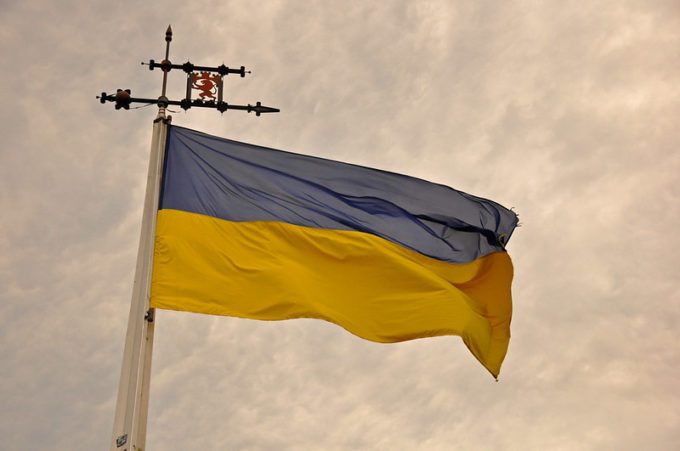Ukraine and realpolitik
Patrick Cockburn is the author of War in the Age of Trump (Verso)
Cross-posted from Counterpunch

Photograph Source: Jennifer Boyer – CC BY 2.0
The torrent of words pouring out of governments and the media about Ukraine is masking the most puzzling aspect of the crisis. The West and its allies insist on keeping open the option of Ukraine joining Nato, a military alliance, while simultaneously declaring that they have no intention of defending Ukraine militarily in the event of a Russian invasion.
Much attention is given to President Putin’s motives, such as his supposed need to win success abroad to compensate for waning popularity at home. But the Russian establishment as a whole sees Ukraine as its greatest strategic interest and views its shift to a pro-western stance in 2014 as its worst setback since the fall of the Soviet Union. If Putin dropped dead tomorrow this stance would not change.
I am not arguing that Russia has any imperial right to quash Ukrainian self-determination, but the confrontation should be viewed realistically and Ukrainians should not be lured into imagining that any Nato cavalry will be riding to their rescue.
America, Britain and other Nato states are largely waging a fierce war of words against the Kremlin in a bid to deter Russia from invading Ukraine or extracting concessions from it. But it would be dangerous if anybody took this rhetoric at face value or were too impressed by Boris Johnson’s government springing to their defence.
I remember how the allies of Kuwait in 1990 persuaded its rulers that the best way to deal with Iraq’s threat of invasion was to make no concessions to Saddam Hussein because he would interpret these as a show of weakness. This turned out to be a serious miscalculation.
Kuwait’s position was indeed weak because it could not resist Iraq, but it was still stronger than that of Ukraine today since it could expect the US and its allies to drive the Iraqis out. But Ukrainians can have no such expectations and, if a Russian invasion were to occur, there would presumably be little chance of a withdrawal.
But is Putin planning an invasion, even if it is militarily feasible? It would be an unprecedented leap into the unknown for a leader who has previously calculated the military odds successfully in Chechnya in 1999, Georgia in 2008, Crimea in 2014 and Syria in 2015.
Knowing for certain whether stationing 100,000 Russian troops on the frontiers of Ukraine is a preliminary to a ground attack – or a poker player’s bluff – is clearly impossible. The Russian preparations would be the same in both cases. The movement of Russian military units from the Far East has been cited by commentators as evidence that Putin is serious about his waging war. But he would do precisely the same thing if his motive was solely to give substance to unspoken threats.
I am not sure this war of words will do much to intimidate Moscow. The claim by MI6 that Russia has readied minor Ukrainian politicians to act as their Quislings in Kyiv is, if anything, reassuring, given that Moscow has in the past preferred effective thugs as its local proxies in Chechnya and Afghanistan, rather than obscure players with no political strength of their own like Yevhen Murayev.
In judging the claims by Nato governments and their intelligence services about events in Russia and Ukraine, one should be cautious. Recall their dismal record in Iraq in 2003 when everything said by American and British intelligence about the threat posed by Saddam Hussein and his non-existent WMD turned out to be untrue.
If an invasion does come, what would be its nature? One strategy could be for Russia to occupy Ukraine east of the Dnieper River, which bisects the country. This has the advantage from the Russian point of view that they would be occupying a largely Russian speaking region rather than the heartlands of Ukrainian nationalism further to the west.
A ground war may be avoided this time round, but the present crisis makes plain that Ukraine does have the potential to provoke a real military conflict. This is because there is a real imbalance in strategic interests. Moscow will potentially fight rather than face a hostile Ukraine in military alliance with Western states. The Nato states, for their part, may be willing to urge Ukraine on to act independently, but they will not come to its defence if this provokes a Russian onslaught.
The best solution to this crisis is a treaty that guarantees the neutrality of Ukraine similar to the Austrian State Treaty of 1955. This would stabilise Ukraine and prevent a possible Russian attack, in return for which Ukrainians would lose very little since they are never going to be a member of the EU in the foreseeable future, and joining Nato, a military alliance that is not going to defend them, should not be an attractive option.


Be the first to comment